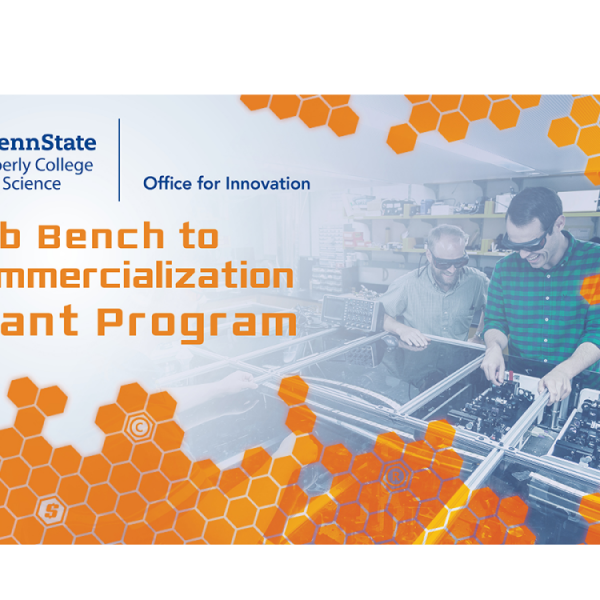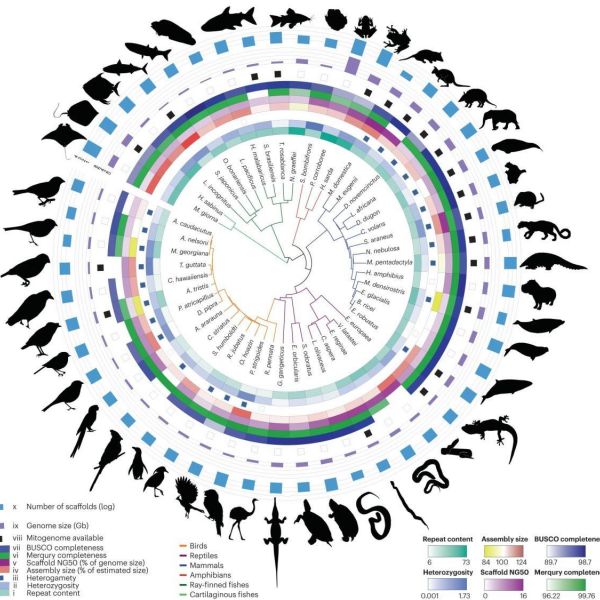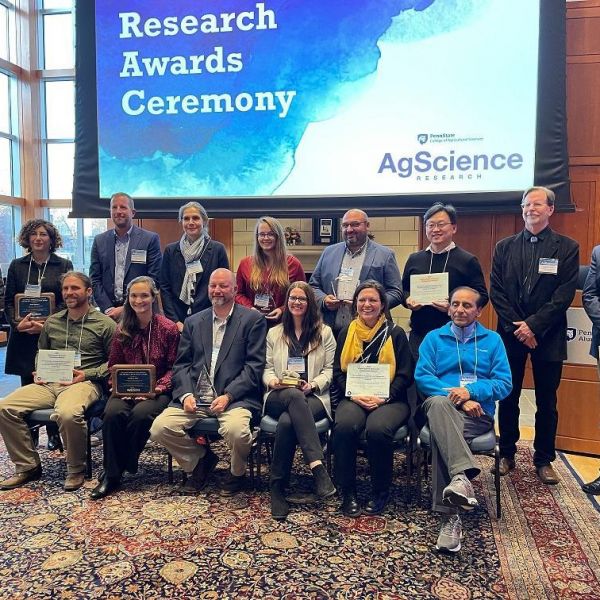News

Apr 05, 2024
Forty graduate students honored with prestigious University awards
Forty Penn State graduate students were named recipients of Penn State’s most prestigious annual graduate student recognition awards, administered by the Graduate School in collaboration with several Penn State units.
Full Article

Mar 22, 2024
$1.6 M from NSF to improve models that inform marine protected areas
To better understand how populations of tropical reef fish are connected, the U.S. National Science Foundation has awarded a three-year, $1.6 million biological oceanography grant to a team co-led by Eric Crandall, assistant research professor of biology in the Penn State Eberly College of Science. This work aims to help improve models used in fisheries management and may guide the creation of new protected areas for marine species.
Full Article

Mar 07, 2024
Penn State biologist David Toews receives 2024 NSF CAREER Award
David Toews, assistant professor of biology, has been honored with a Faculty Early Career Development (CAREER) award from the U.S. National Science Foundation.
Full Article

Feb 22, 2024
Anton Nekrutenko named Huck Chair in Genomics
Anton Nekrutenko, professor of biochemistry and molecular biology in the Eberly College of Science at Penn State, has been appointed as the first Dorothy Foher Huck and J. Lloyd Huck Chair in Genomics.
Full Article

Feb 15, 2024
Lab Bench to Commercialization 2024 grant recipients announced
Four projects led by researchers in the Penn State Eberly College of Science have been selected to receive Lab Bench to Commercialization (LB2C) grants in 2024
Full Article

Feb 09, 2024
Predicting neurodevelopmental disease in children from parent’s traits
Predicting the trajectory of neurodevelopmental and psychiatric disorders like autism or schizophrenia is difficult because they can be influenced by many different genetic and environmental factors
Full Article

Feb 05, 2024
Researchers assemble 51 animal genomes using publicly accessible workflows
Using a new set of tools, an international research collaboration including scientists from Penn State, Rockefeller University and Johns Hopkins University have reconstructed genetic blueprints for 51 species.
Full Article

Nov 28, 2023
College of Ag Sciences recognizes faculty, staff for research achievements
Penn State’s College of Agricultural Sciences lauded outstanding accomplishments in research during the 2023 Research Awards Ceremony, held Nov. 1 at the Hintz Family Alumni Center on the University Park campus.
Full Article

Oct 18, 2023
Manuel Llinás named as the Ernest C. Pollard Professor in Biotechnology
Manuel Llinás, distinguished professor of biochemistry and molecular biology and of chemistry in the Penn State Eberly College of Science, has been named the Ernest C. Pollard Professor in Biotechnology.
Full Article
Oct 09, 2023
Podcast explores impacts of inter-species microbial interactions
Over the past two decades, scientists have discovered that all multicellular life forms on Earth, including human beings, play host to a multitude of microorganisms.
Full Article